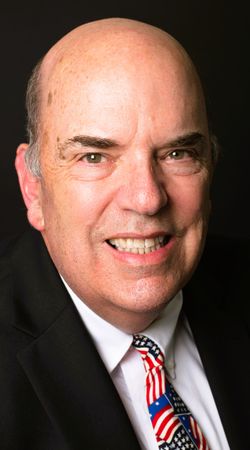Michigan's 2nd Congressional District election, 2024
2026 →
← 2022
|
| Michigan's 2nd Congressional District |
|---|
| Democratic primary Republican primary General election |
| Election details |
| Filing deadline: April 23, 2024 |
| Primary: August 6, 2024 General: November 5, 2024 |
| How to vote |
| Poll times: 7 a.m. to 8 p.m. Voting in Michigan |
| Race ratings |
DDHQ and The Hill: Safe Republican Inside Elections: Solid Republican Sabato's Crystal Ball: Safe Republican |
| Ballotpedia analysis |
| U.S. Senate battlegrounds U.S. House battlegrounds Federal and state primary competitiveness Ballotpedia's Election Analysis Hub, 2024 |
| See also |
U.S. Senate • 1st • 2nd • 3rd • 4th • 5th • 6th • 7th • 8th • 9th • 10th • 11th • 12th • 13th Michigan elections, 2024 U.S. Congress elections, 2024 U.S. Senate elections, 2024 U.S. House elections, 2024 |
All U.S. House districts, including the 2nd Congressional District of Michigan, held elections in 2024. The general election was November 5, 2024. The primary was August 6, 2024. The filing deadline was April 23, 2024. The outcome of this race affected the partisan balance of the U.S. House of Representatives in the 119th Congress. All 435 House districts were up for election.
At the time of the election, Republicans held a 220-212 majority with three vacancies.[1] As a result of the election, Republicans retained control of the U.S. House, winning 220 seats to Democrats' 215.[2] To read more about the 2024 U.S. House elections, click here.
In the 2022 election in this district, the Republican candidate won 63.7%-34.4%. Daily Kos calculated what the results of the 2020 presidential election in this district would have been following redistricting. Donald Trump (R) would have defeated Joe Biden (D) 63.2%-35.0%.[3]
For more information about the primaries in this election, click on the links below:
- Michigan's 2nd Congressional District election, 2024 (August 6 Democratic primary)
- Michigan's 2nd Congressional District election, 2024 (August 6 Republican primary)
Candidates and election results
General election
General election for U.S. House Michigan District 2
Incumbent John Moolenaar defeated Michael Lynch, Ben DeJong, and Scott Adams in the general election for U.S. House Michigan District 2 on November 5, 2024.
Candidate | % | Votes | ||
| ✔ |  | John Moolenaar (R) | 65.1 | 279,167 |
 | Michael Lynch (D)  | 31.7 | 135,824 | |
 | Ben DeJong (L) | 1.6 | 7,037 | |
 | Scott Adams (U.S. Taxpayers Party) | 1.5 | 6,522 | |
| Total votes: 428,550 | ||||
 = candidate completed the Ballotpedia Candidate Connection survey. = candidate completed the Ballotpedia Candidate Connection survey. | ||||
| If you are a candidate and would like to tell readers and voters more about why they should vote for you, complete the Ballotpedia Candidate Connection Survey. | ||||
Do you want a spreadsheet of this type of data? Contact our sales team. | ||||
Democratic primary election
Democratic primary for U.S. House Michigan District 2
Michael Lynch advanced from the Democratic primary for U.S. House Michigan District 2 on August 6, 2024.
Candidate | % | Votes | ||
| ✔ |  | Michael Lynch  | 100.0 | 39,503 |
| Total votes: 39,503 | ||||
 = candidate completed the Ballotpedia Candidate Connection survey. = candidate completed the Ballotpedia Candidate Connection survey. | ||||
| If you are a candidate and would like to tell readers and voters more about why they should vote for you, complete the Ballotpedia Candidate Connection Survey. | ||||
Do you want a spreadsheet of this type of data? Contact our sales team. | ||||
Republican primary election
Republican primary for U.S. House Michigan District 2
Incumbent John Moolenaar advanced from the Republican primary for U.S. House Michigan District 2 on August 6, 2024.
Candidate | % | Votes | ||
| ✔ |  | John Moolenaar | 100.0 | 94,937 |
| Total votes: 94,937 | ||||
 = candidate completed the Ballotpedia Candidate Connection survey. = candidate completed the Ballotpedia Candidate Connection survey. | ||||
| If you are a candidate and would like to tell readers and voters more about why they should vote for you, complete the Ballotpedia Candidate Connection Survey. | ||||
Do you want a spreadsheet of this type of data? Contact our sales team. | ||||
Libertarian convention
Libertarian convention for U.S. House Michigan District 2
Ben DeJong advanced from the Libertarian convention for U.S. House Michigan District 2 on July 20, 2024.
Candidate | ||
| ✔ |  | Ben DeJong (L) |
 = candidate completed the Ballotpedia Candidate Connection survey. = candidate completed the Ballotpedia Candidate Connection survey. | ||||
| If you are a candidate and would like to tell readers and voters more about why they should vote for you, complete the Ballotpedia Candidate Connection Survey. | ||||
Do you want a spreadsheet of this type of data? Contact our sales team. | ||||
U.S. Taxpayers Party convention
U.S. Taxpayers Party convention for U.S. House Michigan District 2
Scott Adams advanced from the U.S. Taxpayers Party convention for U.S. House Michigan District 2 on July 27, 2024.
Candidate | ||
| ✔ |  | Scott Adams (U.S. Taxpayers Party) |
 = candidate completed the Ballotpedia Candidate Connection survey. = candidate completed the Ballotpedia Candidate Connection survey. | ||||
| If you are a candidate and would like to tell readers and voters more about why they should vote for you, complete the Ballotpedia Candidate Connection Survey. | ||||
Do you want a spreadsheet of this type of data? Contact our sales team. | ||||
Candidate profiles
This section includes candidate profiles that may be created in one of two ways: either the candidate completed Ballotpedia's Candidate Connection survey, or Ballotpedia staff may compile a profile based on campaign websites, advertisements, and public statements after identifying the candidate as noteworthy. For more on how we select candidates to include, click here.

Party: Democratic Party
Incumbent: No
Submitted Biography: "I live in Alma in Gratiot County. I am the proud father of one daughter who is a medical professional. I spent my childhood living in various parts of the United States with my father, a decorated Air Force officer, and mother, a Marine. I am a manager with the Saginaw Chippewa Tribe of Michigan. I earned several teaching awards for my work as a lecturer and adjunct professor at universities including Louisiana State University, Indiana University, DePaul University, West Virginia University and Georgetown University. I am an Eagle Boy Scout and I currently volunteer with the local council. My political experience includes campaigning for Jimmy Carter, Michael Dukakis, Al Gore, and Bill Clinton. I am a lifelong advocate for working- and middle-class families. I support labor/unions, the right to choose, responsible gun ownership, and access to affordable quality health care."
![]()
This information was current as of the candidate's run for U.S. House Michigan District 2 in 2024.
Voting information
- See also: Voting in Michigan
Ballotpedia's Candidate Connection survey responses
Ballotpedia asks all federal, state, and local candidates to complete a survey and share what motivates them on political and personal levels. The section below shows responses from candidates in this race who completed Ballotpedia's Candidate Connection survey. Candidates are asked three required questions for this survey, but they may answer additional optional questions as well.

Survey responses from candidates in this race
Click on a candidate's name to visit their Ballotpedia page.
Note: Ballotpedia reserves the right to edit Candidate Connection survey responses. Any edits made by Ballotpedia will be clearly marked with [brackets] for the public. If the candidate disagrees with an edit, he or she may request the full removal of the survey response from Ballotpedia.org. Ballotpedia does not edit or correct typographical errors unless the candidate's campaign requests it.
| Collapse all

Michael Lynch (D)
Climate change, evolving international markets, and corporate consolidation have created an economic crisis for agriculture, particularly for family farms. Four firms control 85% of beef production, 66% of pork, and 54% of chicken. Anti-trust laws must be enforced to improve competition in agricultural markets. Increased competition will boost the prices paid to farmers and ranchers and reduce prices at the grocery store. Our watersheds must be preserved for recreation and for the economic engines that they are. Clean and renewable energy projects, such as solar and wind farms, will help by creating jobs and boosting tax revenues. Reliable and affordable broadband internet is essential for at-home workers, students, and farmers
Transparency at all levels of government should be the rule. Half-truths, rumors, and misinformation from our elected officials should not be circulated or tolerated. Our government should not be swayed by moneyed interests. Now is the time for the return of the Statesman and Stateswoman. Our elected officials should not expect their constituents to be bullied by fear. Elections and those who facilitate them are under attack. Anyone who claims that our elections are falsified or who would join legislators in trying to overturn a fair election does not have the best interest of our country in mind and is unfit to represent the people of Michigan. I support regulations and laws to make voting as easy as possible, so everyone has a voice.

Michael Lynch (D)

Michael Lynch (D)

Michael Lynch (D)

Michael Lynch (D)

Michael Lynch (D)

Michael Lynch (D)

Michael Lynch (D)

Michael Lynch (D)

Michael Lynch (D)

Michael Lynch (D)

Michael Lynch (D)

Michael Lynch (D)

Michael Lynch (D)

Michael Lynch (D)

Michael Lynch (D)

Michael Lynch (D)

Michael Lynch (D)

Michael Lynch (D)

Michael Lynch (D)

Michael Lynch (D)

Michael Lynch (D)
Abraham, Isaac, Jacob, and Moses are out on the golf course. Moses hits his ball into a pond. Abraham tells Moses that he will have to take a penalty stroke. Moses says that Arnold Palmer would hit the ball where it lies. Moses walks up to the pond, raises his golf club, parts the water, and takes his next stroke. The foursome nearby yells, "Who does that guy think he is, Moses?" Abraham yells back, "No, he thinks he's Arnold Palmer."
The context is that I was volunteering at the Bay Hill Classic in Orlando and Arnold Palmer was standing right there.
Michael Lynch (D)

Michael Lynch (D)

Michael Lynch (D)

Michael Lynch (D)

Michael Lynch (D)
Campaign finance
| Name | Party | Receipts* | Disbursements** | Cash on hand | Date |
|---|---|---|---|---|---|
| John Moolenaar | Republican Party | $2,135,245 | $1,359,471 | $1,281,944 | As of December 31, 2024 |
| Michael Lynch | Democratic Party | $19,849 | $18,406 | $4,329 | As of December 31, 2024 |
| Ben DeJong | Libertarian Party | $0 | $0 | $0 | Data not available*** |
| Scott Adams | U.S. Taxpayers Party | $0 | $0 | $0 | Data not available*** |
|
Source: Federal Elections Commission, "Campaign finance data," 2024. This product uses the openFEC API but is not endorsed or certified by the Federal Election Commission (FEC).
* According to the FEC, "Receipts are anything of value (money, goods, services or property) received by a political committee." |
|||||
General election race ratings
- See also: Race rating definitions and methods
Ballotpedia provides race ratings from four outlets: The Cook Political Report, Inside Elections, Sabato's Crystal Ball, and DDHQ/The Hill. Each race rating indicates if one party is perceived to have an advantage in the race and, if so, the degree of advantage:
- Safe and Solid ratings indicate that one party has a clear edge and the race is not competitive.
- Likely ratings indicate that one party has a clear edge, but an upset is possible.
- Lean ratings indicate that one party has a small edge, but the race is competitive.[4]
- Toss-up ratings indicate that neither party has an advantage.
Race ratings are informed by a number of factors, including polling, candidate quality, and election result history in the race's district or state.[5][6][7]
| Race ratings: Michigan's 2nd Congressional District election, 2024 | |||||||||
|---|---|---|---|---|---|---|---|---|---|
| Race tracker | Race ratings | ||||||||
| November 5, 2024 | October 29, 2024 | October 22, 2024 | October 15, 2024 | ||||||
| The Cook Political Report with Amy Walter | Solid Republican | Solid Republican | Solid Republican | Solid Republican | |||||
| Decision Desk HQ and The Hill | Safe Republican | Safe Republican | Safe Republican | Safe Republican | |||||
| Inside Elections with Nathan L. Gonzales | Solid Republican | Solid Republican | Solid Republican | Solid Republican | |||||
| Larry J. Sabato's Crystal Ball | Safe Republican | Safe Republican | Safe Republican | Safe Republican | |||||
| Note: Ballotpedia reviews external race ratings every week throughout the election season and posts weekly updates even if the media outlets have not revised their ratings during that week. | |||||||||
Ballot access
The table below details filing requirements for U.S. House candidates in Michigan in the 2024 election cycle. For additional information on candidate ballot access requirements in Michigan, click here.
| Filing requirements for U.S. House candidates, 2024 | ||||||
|---|---|---|---|---|---|---|
| State | Office | Party | Signatures required | Filing fee | Filing deadline | Source |
| Michigan | U.S. House | Democratic or Republican | 1,000-2,000 | N/A | 4/23/2024 | Source |
| Michigan | U.S. House | Unaffiliated | 3,000-6,000 | N/A | 7/18/2024 | Source |
District analysis
Click the tabs below to view information about voter composition, past elections, and demographics in both the district and the state.
- District map - A map of the district in place for the election.
- Competitiveness - Information about the competitiveness of 2024 U.S. House elections in the state.
- Presidential elections - Information about presidential elections in the district and the state.
- State party control - The partisan makeup of the state's congressional delegation and state government.
Below was the map in use at the time of the election. Click the map below to enlarge it.

This section contains data on U.S. House primary election competitiveness in Michigan.
| Michigan U.S. Senate competitiveness, 2014-2024 | ||||||||||||||
|---|---|---|---|---|---|---|---|---|---|---|---|---|---|---|
| Office | Districts/ offices |
Seats | Open seats | Candidates | Possible primaries | Contested Democratic primaries | Contested Republican primaries | % of contested primaries | Incumbents in contested primaries | % of incumbents in contested primaries | ||||
| 2024 | 1 | 1 | 1 | 6 | 2 | 1 | 1 | 100.0% | 0 | N/A | ||||
| 2020 | 1 | 1 | 0 | 2 | 2 | 0 | 0 | 0.0% | 0 | N/A | ||||
| 2018 | 1 | 1 | 0 | 3 | 2 | 0 | 1 | 50.0% | 0 | N/A | ||||
| 2014 | 1 | 1 | 1 | 2 | 2 | 0 | 0 | 0.0% | 0 | N/A | ||||
U.S. House
| Michigan U.S. House competitiveness, 2014-2024 | ||||||||||||||
|---|---|---|---|---|---|---|---|---|---|---|---|---|---|---|
| Office | Districts/ offices |
Seats | Open seats | Candidates | Possible primaries | Contested Democratic primaries | Contested Republican primaries | % of contested primaries | Incumbents in contested primaries | % of incumbents in contested primaries | ||||
| 2024 | 13 | 13 | 2 | 43 | 26 | 6 | 6 | 46.2% | 5 | 45.5% | ||||
| 2022 | 13 | 13 | 2 | 53 | 26 | 4 | 9 | 50.0% | 7 | 58.3% | ||||
| 2020 | 14 | 14 | 1 | 55 | 28 | 7 | 8 | 53.6% | 4 | 33.3% | ||||
| 2018 | 14 | 14 | 2 | 51 | 28 | 9 | 1 | 35.7% | 1 | 9.1% | ||||
| 2016 | 14 | 14 | 2 | 38 | 28 | 3 | 3 | 21.4% | 3 | 25.0% | ||||
| 2014 | 14 | 14 | 4 | 48 | 28 | 5 | 8 | 46.4% | 6 | 60.0% | ||||
Post-filing deadline analysis
The following analysis covers all U.S. House districts up for election in Michigan in 2024. Information below was calculated on June 5, 2024, and may differ from information shown in the table above due to candidate replacements and withdrawals after that time.
Forty-three candidates ran for Michigan’s 13 U.S. House districts, including 23 Democrats and 20 Republicans. That’s an average of 3.3 candidates per district.
The 43 candidates who ran in Michigan in 2024 was the fewest number of candidates since 2016, when 38 candidates ran.
The 7th and 8th Congressional Districts were open in 2024. Between 2014 and 2022, an average of 2.2 districts were open per year.
Incumbent Rep. Elissa Slotkin (D-07) did not run for re-election because she ran for the U.S. Senate. Rep. Dan Kildee (D-08) retired from public office.
Six candidates—three Democrats and three Republicans—ran for the open 8th Congressional District, the most candidates who ran for a seat in Michigan in 2024.
Twelve primaries—six Democratic and six Republican—were contested in 2024. Between 2014 and 2022, an average of 11.4 primaries were contested per year.
Five incumbents—three Democrats and two Republicans—were in contested primaries in 2024. Between 2014 and 2022, an average of 4.2 incumbents ran in contested primaries.
Candidates filed to run in the Republican and Democratic primaries in all 13 districts, meaning no seats were guaranteed to either party.Partisan Voter Index
Heading into the 2024 elections, based on results from the 2020 and 2016 presidential elections, the Cook Partisan Voter Index for this district was R+16. This meant that in those two presidential elections, this district's results were 16 percentage points more Republican than the national average. This made Michigan's 2nd the 67th most Republican district nationally.[8]
2020 presidential election results
The table below shows what the vote in the 2020 presidential election would have been in this district. The presidential election data was compiled by Daily Kos.
| 2020 presidential results in Michigan's 2nd based on 2024 district lines | ||||
|---|---|---|---|---|
| Joe Biden |
Donald Trump | |||
| 35.0% | 63.2% | |||
Inside Elections Baselines
- See also: Inside Elections
Inside Elections' Baseline is a figure that analyzes all federal and statewide election results from the district over the past four election cycles. The results are combined in an index estimating the strength of a typical Democratic or Republican candidate in the congressional district.[9] The table below displays the Baseline data for this district.
| Inside Elections Baseline for 2024 | ||||
|---|---|---|---|---|
| Democratic Baseline |
Republican Baseline |
Difference | ||
| 37.8 | 58.7 | R+20.9 | ||
Presidential voting history
- See also: Presidential election in Michigan, 2020
Michigan presidential election results (1900-2020)
- 13 Democratic wins
- 17 Republican wins
- 1 other win
| Year | 1900 | 1904 | 1908 | 1912 | 1916 | 1920 | 1924 | 1928 | 1932 | 1936 | 1940 | 1944 | 1948 | 1952 | 1956 | 1960 | 1964 | 1968 | 1972 | 1976 | 1980 | 1984 | 1988 | 1992 | 1996 | 2000 | 2004 | 2008 | 2012 | 2016 | 2020 |
|---|---|---|---|---|---|---|---|---|---|---|---|---|---|---|---|---|---|---|---|---|---|---|---|---|---|---|---|---|---|---|---|
| Winning Party | R | R | R | P[10] | R | R | R | R | D | D | R | D | R | R | R | D | D | D | R | R | R | R | R | D | D | D | D | D | D | R | D |
Congressional delegation
The table below displays the partisan composition of Michigan's congressional delegation as of May 2024.
| Congressional Partisan Breakdown from Michigan | |||
|---|---|---|---|
| Party | U.S. Senate | U.S. House | Total |
| Democratic | 2 | 6 | 8 |
| Republican | 0 | 7 | 7 |
| Independent | 0 | 0 | 0 |
| Vacancies | 0 | 0 | 0 |
| Total | 2 | 13 | 15 |
State executive
The table below displays the officeholders in Michigan's top four state executive offices as of May 2024.
| State executive officials in Michigan, May 2024 | |
|---|---|
| Office | Officeholder |
| Governor | |
| Lieutenant Governor | |
| Secretary of State | |
| Attorney General | |
State legislature
Michigan State Senate
| Party | As of February 2024 | |
|---|---|---|
| Democratic Party | 20 | |
| Republican Party | 18 | |
| Other | 0 | |
| Vacancies | 0 | |
| Total | 38 | |
Michigan House of Representatives
| Party | As of February 2024 | |
|---|---|---|
| Democratic Party | 54 | |
| Republican Party | 54 | |
| Other | 0 | |
| Vacancies | 2 | |
| Total | 110 | |
Trifecta control
The table below shows the state's trifecta status from 1992 until the 2024 election.
Michigan Party Control: 1992-2024
Two years of Democratic trifectas • Fourteen years of Republican trifectas
Scroll left and right on the table below to view more years.
| Year | 92 | 93 | 94 | 95 | 96 | 97 | 98 | 99 | 00 | 01 | 02 | 03 | 04 | 05 | 06 | 07 | 08 | 09 | 10 | 11 | 12 | 13 | 14 | 15 | 16 | 17 | 18 | 19 | 20 | 21 | 22 | 23 | 24 |
|---|---|---|---|---|---|---|---|---|---|---|---|---|---|---|---|---|---|---|---|---|---|---|---|---|---|---|---|---|---|---|---|---|---|
| Governor | R | R | R | R | R | R | R | R | R | R | R | D | D | D | D | D | D | D | D | R | R | R | R | R | R | R | R | D | D | D | D | D | D |
| Senate | R | R | R | R | R | R | R | R | R | R | R | R | R | R | R | R | R | R | R | R | R | R | R | R | R | R | R | R | R | R | R | D | D |
| House | D | S | S | R | R | D | D | R | R | R | R | R | R | R | R | D | D | D | D | R | R | R | R | R | R | R | R | R | R | R | R | D | D |
District history
The section below details election results for this office in elections dating back to 2018.
General election
General election for U.S. House Michigan District 2
Incumbent John Moolenaar (R) defeated Jerry Hilliard (D) and Nathan Hewer (L) in the general election for U.S. House Michigan District 2 on November 8, 2022.
Candidate | % | Votes | ||
| ✔ |  | John Moolenaar (R) | 63.7 | 216,222 |
 | Jerry Hilliard (D)  | 34.3 | 116,452 | |
 | Nathan Hewer (L) | 2.0 | 6,847 | |
| Total votes: 339,521 | ||||
 = candidate completed the Ballotpedia Candidate Connection survey. = candidate completed the Ballotpedia Candidate Connection survey. | ||||
| If you are a candidate and would like to tell readers and voters more about why they should vote for you, complete the Ballotpedia Candidate Connection Survey. | ||||
Do you want a spreadsheet of this type of data? Contact our sales team. | ||||
Democratic primary
Democratic primary for U.S. House Michigan District 2
Jerry Hilliard (D) advanced from the Democratic primary for U.S. House Michigan District 2 on August 2, 2022.
Candidate | % | Votes | ||
| ✔ |  | Jerry Hilliard  | 100.0 | 40,952 |
| Total votes: 40,952 | ||||
 = candidate completed the Ballotpedia Candidate Connection survey. = candidate completed the Ballotpedia Candidate Connection survey. | ||||
| If you are a candidate and would like to tell readers and voters more about why they should vote for you, complete the Ballotpedia Candidate Connection Survey. | ||||
Do you want a spreadsheet of this type of data? Contact our sales team. | ||||
Withdrawn or disqualified candidates
- Ray Johnson (D)
Republican primary
Republican primary for U.S. House Michigan District 2
Incumbent John Moolenaar (R) defeated Tom Norton (R) and Jericho Gonzales (R) in the Republican primary for U.S. House Michigan District 2 on August 2, 2022.
Candidate | % | Votes | ||
| ✔ |  | John Moolenaar | 65.2 | 77,394 |
 | Tom Norton | 34.8 | 41,273 | |
 | Jericho Gonzales (Write-in)  | 0.0 | 37 | |
| Other/Write-in votes | 0.0% | 37 | ||
| Total votes: 118,741 | ||||
 = candidate completed the Ballotpedia Candidate Connection survey. = candidate completed the Ballotpedia Candidate Connection survey. | ||||
| If you are a candidate and would like to tell readers and voters more about why they should vote for you, complete the Ballotpedia Candidate Connection Survey. | ||||
Do you want a spreadsheet of this type of data? Contact our sales team. | ||||
Libertarian Party convention
Libertarian convention for U.S. House Michigan District 2
Nathan Hewer (L) advanced from the Libertarian Party convention for U.S. House Michigan District 2 on July 10, 2022.
Candidate | ||
| ✔ |  | Nathan Hewer |
 = candidate completed the Ballotpedia Candidate Connection survey. = candidate completed the Ballotpedia Candidate Connection survey. | ||||
| If you are a candidate and would like to tell readers and voters more about why they should vote for you, complete the Ballotpedia Candidate Connection Survey. | ||||
Do you want a spreadsheet of this type of data? Contact our sales team. | ||||
General election
General election for U.S. House Michigan District 2
Incumbent Bill Huizenga (R) defeated Bryan Berghoef (D), Max Riekse (L), Jean-Michel Creviere (G), and Gerald T. Van Sickle (U.S. Taxpayers Party of Michigan) in the general election for U.S. House Michigan District 2 on November 3, 2020.
Candidate | % | Votes | ||
| ✔ |  | Bill Huizenga (R) | 59.2 | 238,711 |
 | Bryan Berghoef (D)  | 38.2 | 154,122 | |
| Max Riekse (L) | 1.3 | 5,292 | ||
 | Jean-Michel Creviere (G)  | 0.7 | 2,646 | |
 | Gerald T. Van Sickle (U.S. Taxpayers Party of Michigan) | 0.6 | 2,476 | |
| Total votes: 403,247 | ||||
 = candidate completed the Ballotpedia Candidate Connection survey. = candidate completed the Ballotpedia Candidate Connection survey. | ||||
| If you are a candidate and would like to tell readers and voters more about why they should vote for you, complete the Ballotpedia Candidate Connection Survey. | ||||
Do you want a spreadsheet of this type of data? Contact our sales team. | ||||
Democratic primary
Democratic primary for U.S. House Michigan District 2
Bryan Berghoef (D) advanced from the Democratic primary for U.S. House Michigan District 2 on August 4, 2020.
Candidate | % | Votes | ||
| ✔ |  | Bryan Berghoef  | 100.0 | 59,703 |
| Total votes: 59,703 | ||||
 = candidate completed the Ballotpedia Candidate Connection survey. = candidate completed the Ballotpedia Candidate Connection survey. | ||||
| If you are a candidate and would like to tell readers and voters more about why they should vote for you, complete the Ballotpedia Candidate Connection Survey. | ||||
Do you want a spreadsheet of this type of data? Contact our sales team. | ||||
Republican primary
Republican primary for U.S. House Michigan District 2
Incumbent Bill Huizenga (R) advanced from the Republican primary for U.S. House Michigan District 2 on August 4, 2020.
Candidate | % | Votes | ||
| ✔ |  | Bill Huizenga | 100.0 | 88,258 |
| Total votes: 88,258 | ||||
 = candidate completed the Ballotpedia Candidate Connection survey. = candidate completed the Ballotpedia Candidate Connection survey. | ||||
| If you are a candidate and would like to tell readers and voters more about why they should vote for you, complete the Ballotpedia Candidate Connection Survey. | ||||
Do you want a spreadsheet of this type of data? Contact our sales team. | ||||
Green Party convention
Green convention for U.S. House Michigan District 2
Jean-Michel Creviere (G) advanced from the Green Party convention for U.S. House Michigan District 2 on June 20, 2020.
Candidate | ||
| ✔ |  | Jean-Michel Creviere  |
 = candidate completed the Ballotpedia Candidate Connection survey. = candidate completed the Ballotpedia Candidate Connection survey. | ||||
| If you are a candidate and would like to tell readers and voters more about why they should vote for you, complete the Ballotpedia Candidate Connection Survey. | ||||
Do you want a spreadsheet of this type of data? Contact our sales team. | ||||
Libertarian Party convention
Libertarian convention for U.S. House Michigan District 2
Max Riekse (L) advanced from the Libertarian Party convention for U.S. House Michigan District 2 on July 18, 2020.
Candidate | ||
| ✔ | Max Riekse | |
 = candidate completed the Ballotpedia Candidate Connection survey. = candidate completed the Ballotpedia Candidate Connection survey. | ||||
| If you are a candidate and would like to tell readers and voters more about why they should vote for you, complete the Ballotpedia Candidate Connection Survey. | ||||
Do you want a spreadsheet of this type of data? Contact our sales team. | ||||
U.S. Taxpayers Party of Michigan convention
U.S. Taxpayers of Michigan convention for U.S. House Michigan District 2
Gerald T. Van Sickle (U.S. Taxpayers Party of Michigan) advanced from the U.S. Taxpayers Party of Michigan convention for U.S. House Michigan District 2 on July 25, 2020.
Candidate | ||
| ✔ |  | Gerald T. Van Sickle |
 = candidate completed the Ballotpedia Candidate Connection survey. = candidate completed the Ballotpedia Candidate Connection survey. | ||||
| If you are a candidate and would like to tell readers and voters more about why they should vote for you, complete the Ballotpedia Candidate Connection Survey. | ||||
Do you want a spreadsheet of this type of data? Contact our sales team. | ||||
General election
General election for U.S. House Michigan District 2
Incumbent Bill Huizenga (R) defeated Rob Davidson (D) and Ronald Graeser (U.S. Taxpayers Party) in the general election for U.S. House Michigan District 2 on November 6, 2018.
Candidate | % | Votes | ||
| ✔ |  | Bill Huizenga (R) | 55.3 | 168,970 |
 | Rob Davidson (D) | 43.0 | 131,254 | |
 | Ronald Graeser (U.S. Taxpayers Party) | 1.7 | 5,239 | |
| Total votes: 305,463 | ||||
 = candidate completed the Ballotpedia Candidate Connection survey. = candidate completed the Ballotpedia Candidate Connection survey. | ||||
| If you are a candidate and would like to tell readers and voters more about why they should vote for you, complete the Ballotpedia Candidate Connection Survey. | ||||
Do you want a spreadsheet of this type of data? Contact our sales team. | ||||
Democratic primary
Democratic primary for U.S. House Michigan District 2
Rob Davidson (D) advanced from the Democratic primary for U.S. House Michigan District 2 on August 7, 2018.
Candidate | % | Votes | ||
| ✔ |  | Rob Davidson | 100.0 | 52,221 |
| Total votes: 52,221 | ||||
 = candidate completed the Ballotpedia Candidate Connection survey. = candidate completed the Ballotpedia Candidate Connection survey. | ||||
| If you are a candidate and would like to tell readers and voters more about why they should vote for you, complete the Ballotpedia Candidate Connection Survey. | ||||
Do you want a spreadsheet of this type of data? Contact our sales team. | ||||
Withdrawn or disqualified candidates
- Nick Schiller (D)
Republican primary
Republican primary for U.S. House Michigan District 2
Incumbent Bill Huizenga (R) advanced from the Republican primary for U.S. House Michigan District 2 on August 7, 2018.
Candidate | % | Votes | ||
| ✔ |  | Bill Huizenga | 100.0 | 79,620 |
| Total votes: 79,620 | ||||
 = candidate completed the Ballotpedia Candidate Connection survey. = candidate completed the Ballotpedia Candidate Connection survey. | ||||
| If you are a candidate and would like to tell readers and voters more about why they should vote for you, complete the Ballotpedia Candidate Connection Survey. | ||||
Do you want a spreadsheet of this type of data? Contact our sales team. | ||||
See also
External links
Footnotes
- ↑ A majority in the U.S. House when there are no vacancies is 218 seats.
- ↑ These figures include the seat of Rep. Matt Gaetz (R-Fla.), who resigned on Nov. 13, 2024, after winning re-election.
- ↑ Daily Kos, "Daily Kos Elections' 2020 presidential results by congressional district, for new and old districts," accessed September 15, 2022
- ↑ Inside Elections also uses Tilt ratings to indicate an even smaller advantage and greater competitiveness.
- ↑ Amee LaTour, "Email correspondence with Nathan Gonzalez," April 19, 2018
- ↑ Amee LaTour, "Email correspondence with Kyle Kondik," April 19, 2018
- ↑ Amee LaTour, "Email correspondence with Charlie Cook," April 22, 2018
- ↑ Cook Political Report, "The 2022 Cook Partisan Voting Index (Cook PVI℠)," accessed January 10, 2024
- ↑ Inside Elections, "Methodology: Inside Elections’ Baseline by Congressional District," December 8, 2023
- ↑ Progressive Party









